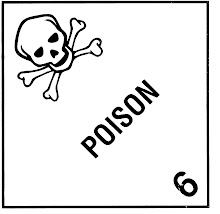 A man that I know was teaching some high school kids to play together in a band. He told me afterwards that each kid was thrilled to be able to play in an actual band, and was determined to do exactly that: play. This guy had to go to great lengths to get them to stop; explaining to me that "the essence of music is NOT playing." When everyone plays simultaneously, it is less like music and more like noise.
A man that I know was teaching some high school kids to play together in a band. He told me afterwards that each kid was thrilled to be able to play in an actual band, and was determined to do exactly that: play. This guy had to go to great lengths to get them to stop; explaining to me that "the essence of music is NOT playing." When everyone plays simultaneously, it is less like music and more like noise.As I began to roll that idea around, it struck me that this thought has application everywhere in life. In the print advertising industry, the term "negative space" is used to describe the empty page around the dominant element of an ad. More of that emptiness is better; when I have a page that's full, it takes away from what I'm selling. Absolut Vodka is iconic in its use of understatement...who would argue that they need more artwork on their page? In conversation, the best ones are defined by someone who is willing to listen to you. Their use of verbal "negative space" gives your words more impact. If everyone were talking to your audience simultaneously, how much less would your words mean? In sports, the phrase "play your position" is painfully cliche', but only because we believe that we are ubiquitous. We have to be taught that we cannot play everywhere. Our application of negative space on the court provides someone else the opportunity to execute. (The best example of the converse of that principle is a six-year-old's soccer game: ten kids packed tightly around a single ball, all kicking furiously.)
It is this principle that explains why micromanagement isn't leadership. A micro-manager believes that his hand; his impact must be felt in every decision. A leader understands that the best music is created with the judicious use of silence. Rather than insisting on playing every measure of the song, a strong leader is willing to let other people play. A micro-manager is revealed as a weak leader by their unwillingness (their fear of) letting others pick up an instrument. Shut up, let go, relax and give someone else a turn. Our fear of their screw-ups keep us from really good music.

No comments:
Post a Comment